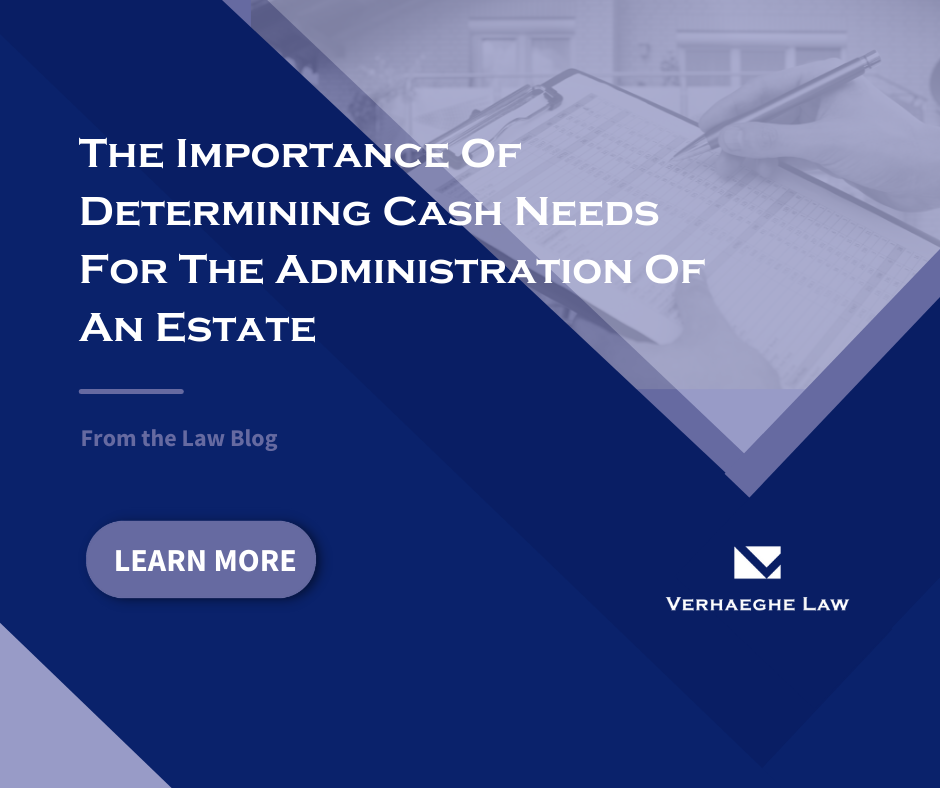The Importance of Determining Cash Needs for the Administration of an Estate

The cash needs of an estate in Alberta are often not as large a concern as they are in jurisdictions that have significant estate taxes. However, even without estate taxes, the administrator of an estate in Alberta is still responsible for paying all debts and bills, including the income tax of the deceased in the year of their death, prior to distributing any assets to the beneficiaries. This can interfere with the intention of a testator to pass specific assets, such as business assets or real property, to their beneficiaries.
Whether you are determining your own estate needs or administering the estate of another, our Edmonton estate administration lawyers can ensure that you understand the importance of determining cash needs for the administration of an estate.
Reasons an Estate May Need Cash
The administrator of an estate cannot distribute the assets of the estate to beneficiaries until they have paid all debts, outstanding bills, and taxes for which the estate is responsible. Depending on the size and nature of the estate, the debts, bills and taxes may or may not be significant.
Typical bills can include:
- - Funeral or burial costs
- - Professional help sought in the administration of the estate (for example, lawyer or accountant's fees)
- - Professional help sought in maintaining assets (for example, fixing the roof or cutting the grass at the testator's home pending its sale or distribution).
Court fees related to a grant of probate in Alberta are set out in the Surrogate Rules and vary according to the net value of Alberta property held by the estate:
- - Where the net value of the estate is $10,000 or under, probate fees are $35
- - Where the estate is valued over $10,000 but not more than $25,000, probate fees are $135
- - Where the net value is over $25,000 but not more than $125,000, probate fees are $275
- - Where the net value is over $125,000 but not more than $250,000, probate fees are $400
- - Where the net value is over $250,000, the probate fees are $525.
Income Taxes
The income taxes of the deceased may be one of the most onerous responsibilities that the administrator has to meet before distributing the remainder of the estate.
Canada does not have an estate or inheritance tax, but it does have deemed disposition rules, which deem that a deceased has disposed of all capital property right before their death. There is a one-time capital gains exemption that may be applicable for many people and can reduce tax liability. However, if the testator has significant assets, the deemed disposition rules can result in a significant income tax bill due to the resulting net capital gains.
Sources of Cash
The administrator can obtain cash to cover these obligations from:
- - An income tax refund
- - Insurance proceeds
- - CPP death benefit
- - Liquid assets.
Where these sources are insufficient, it may be necessary to sell business assets or real property. This often means that either:
- - The testator's intended beneficiaries end up contributing the necessary cash to the estate so they can receive their intended inheritance, or
- - The inheritance is lost to cover the debts of the estate.
Contact our Edmonton Estate Administration Lawyers Today For a Consultation
Our Edmonton estate administration lawyers can help you to determine the cash needs for the estate that you are responsible for administering. Contact us to schedule a consultation today.
*Please be advised that the information in this article is not intended as legal advice, but as a general overview on a legal subject. Please consult with a lawyer if you require legal advice.
